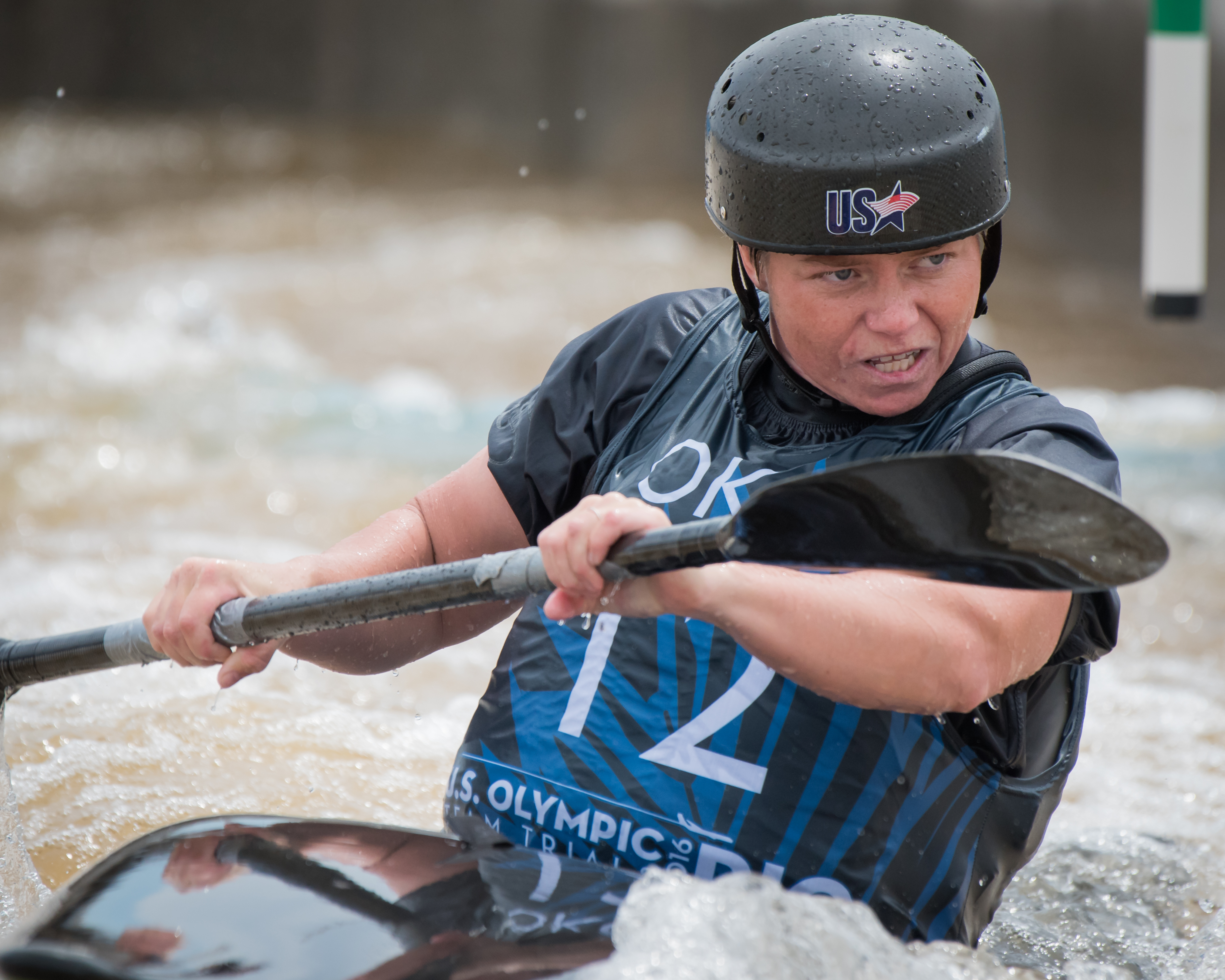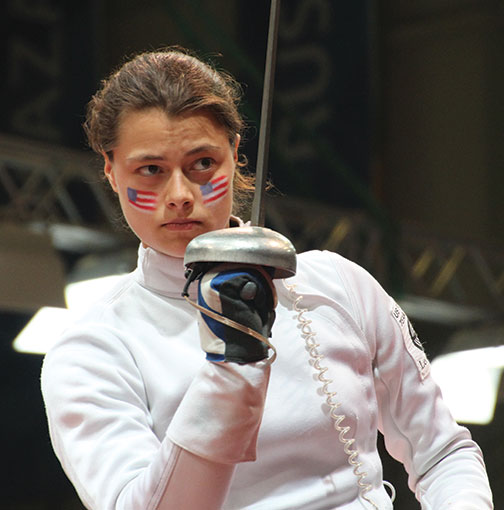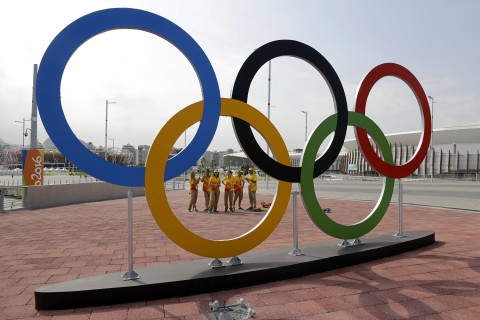
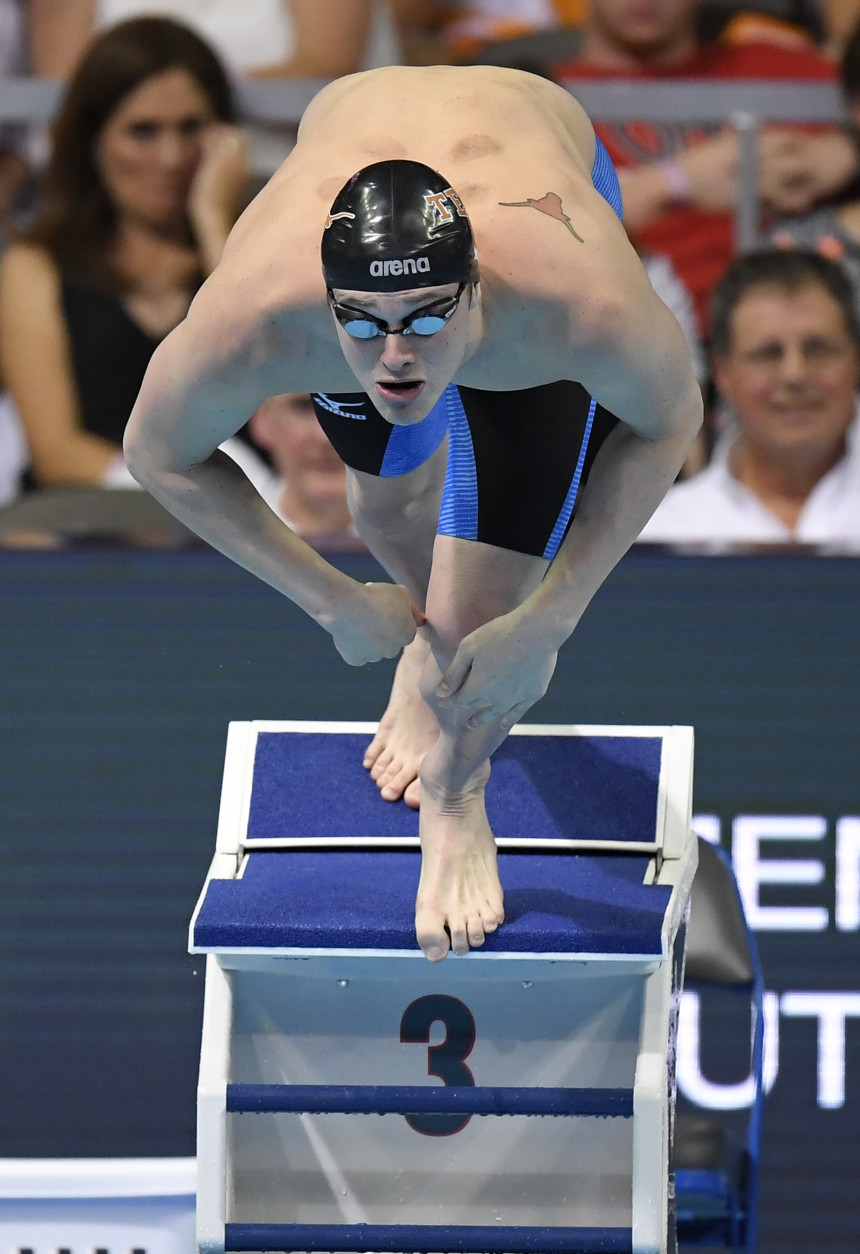
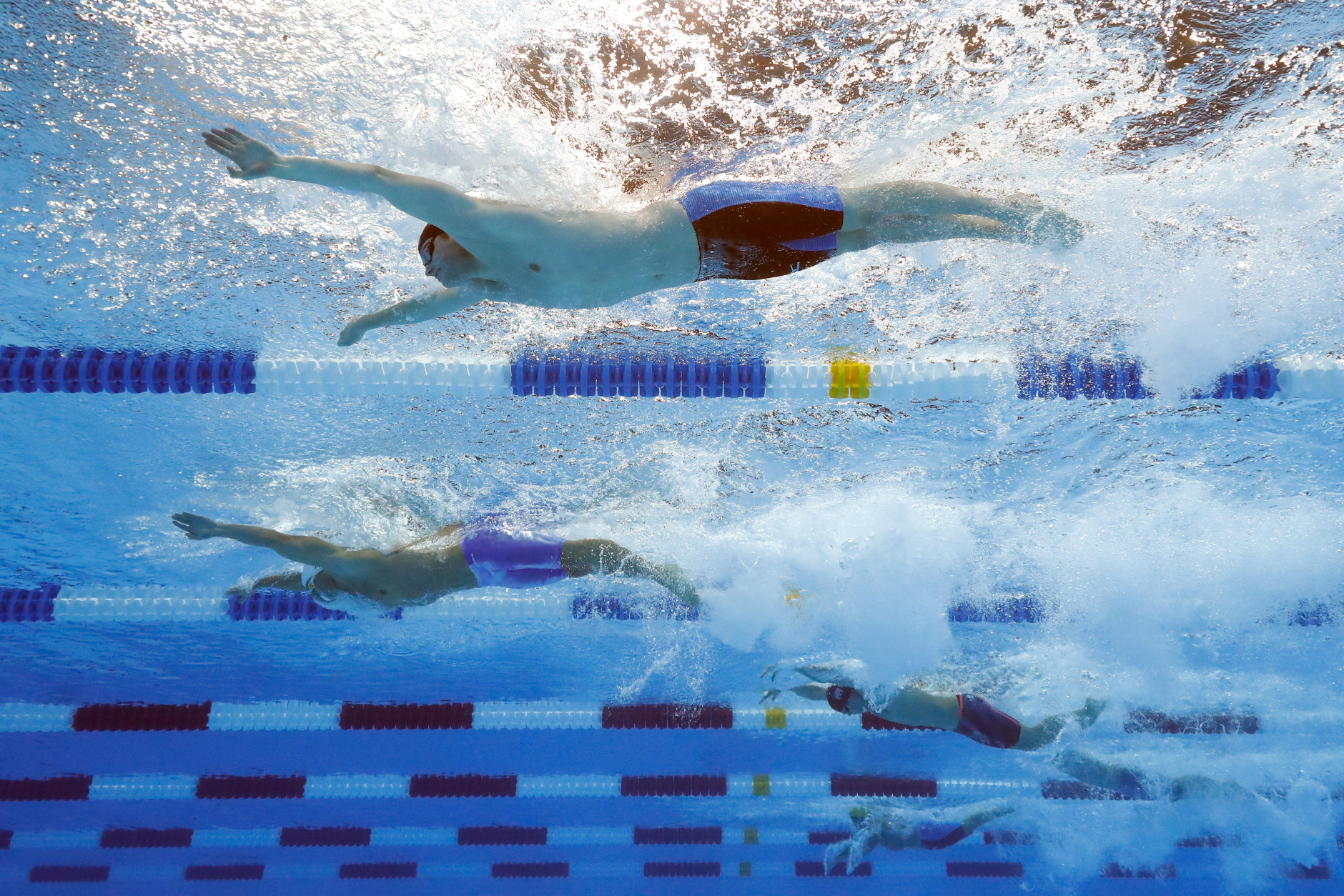
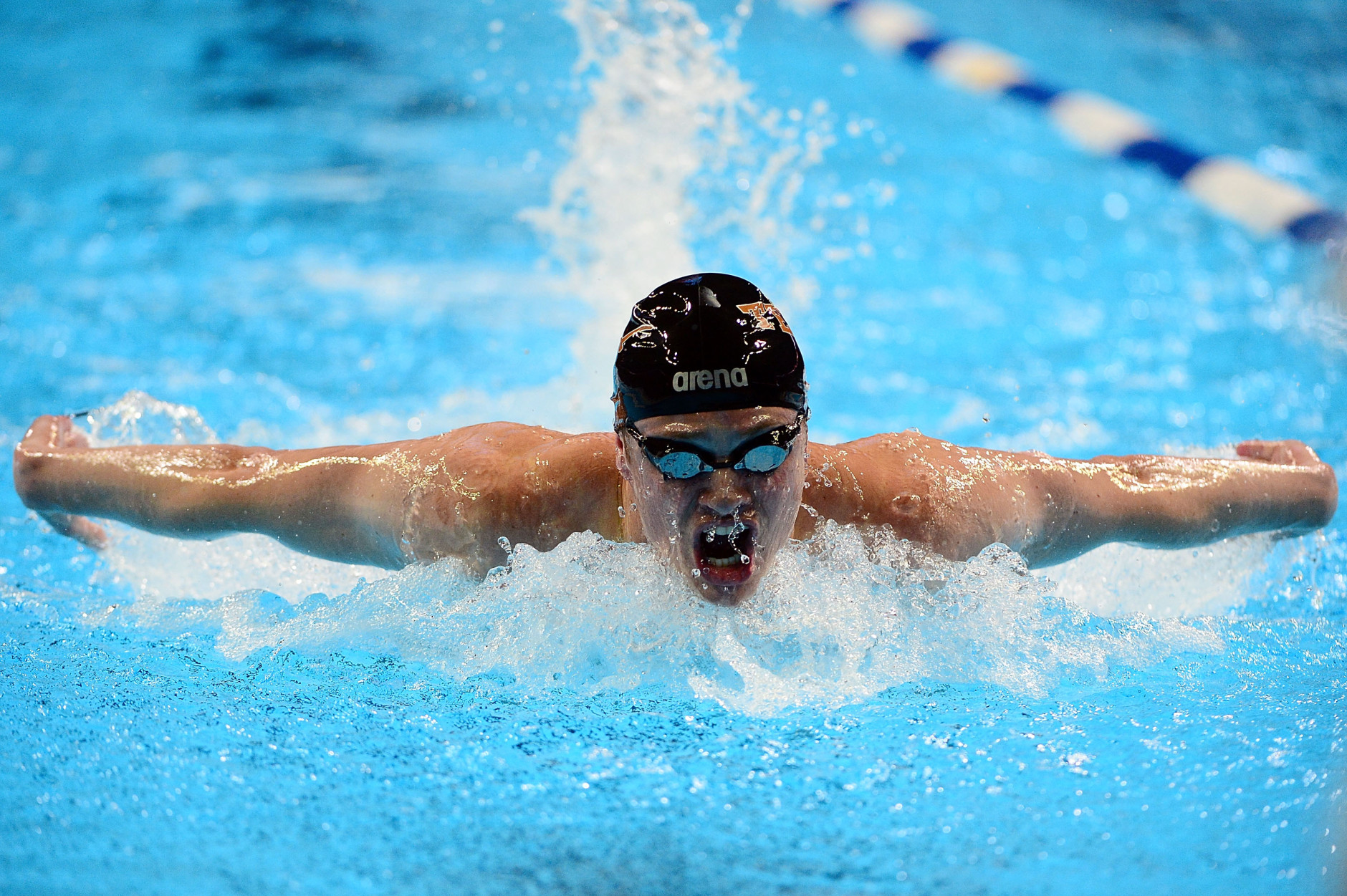
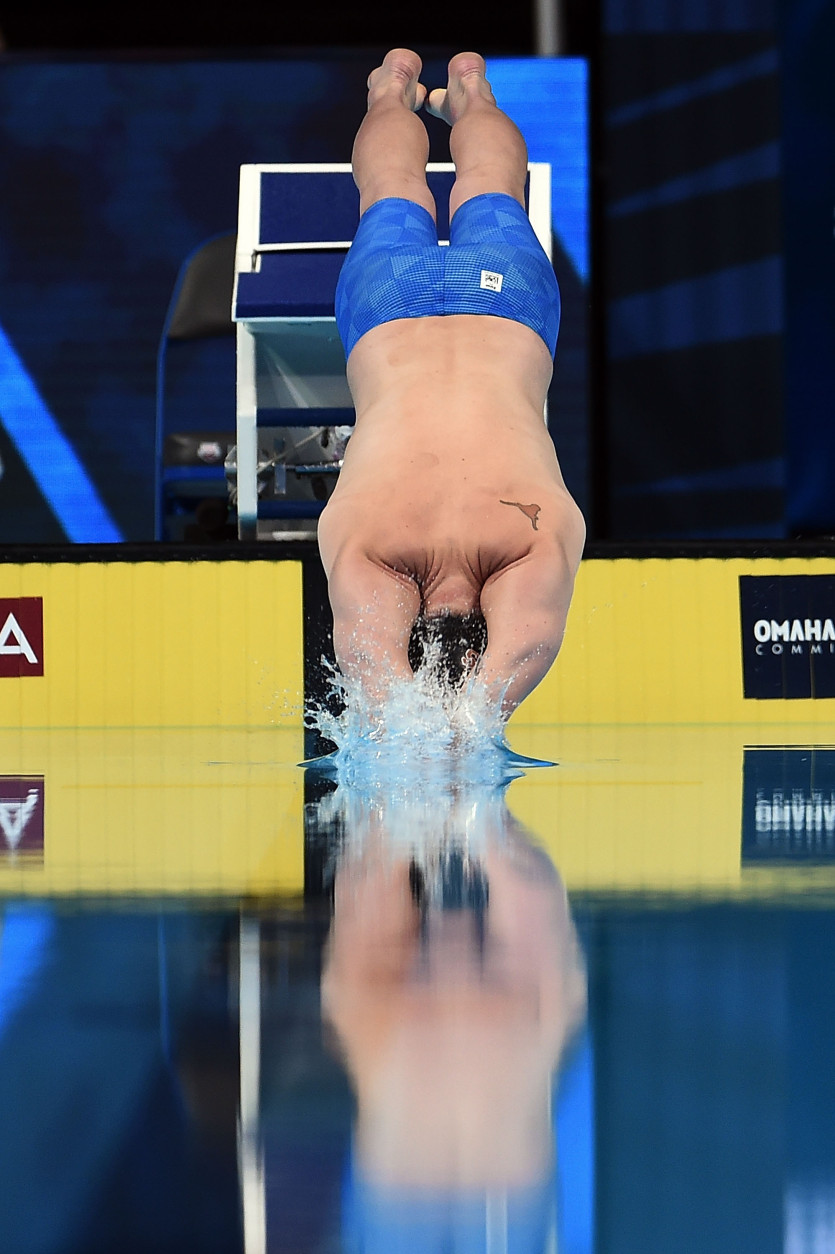
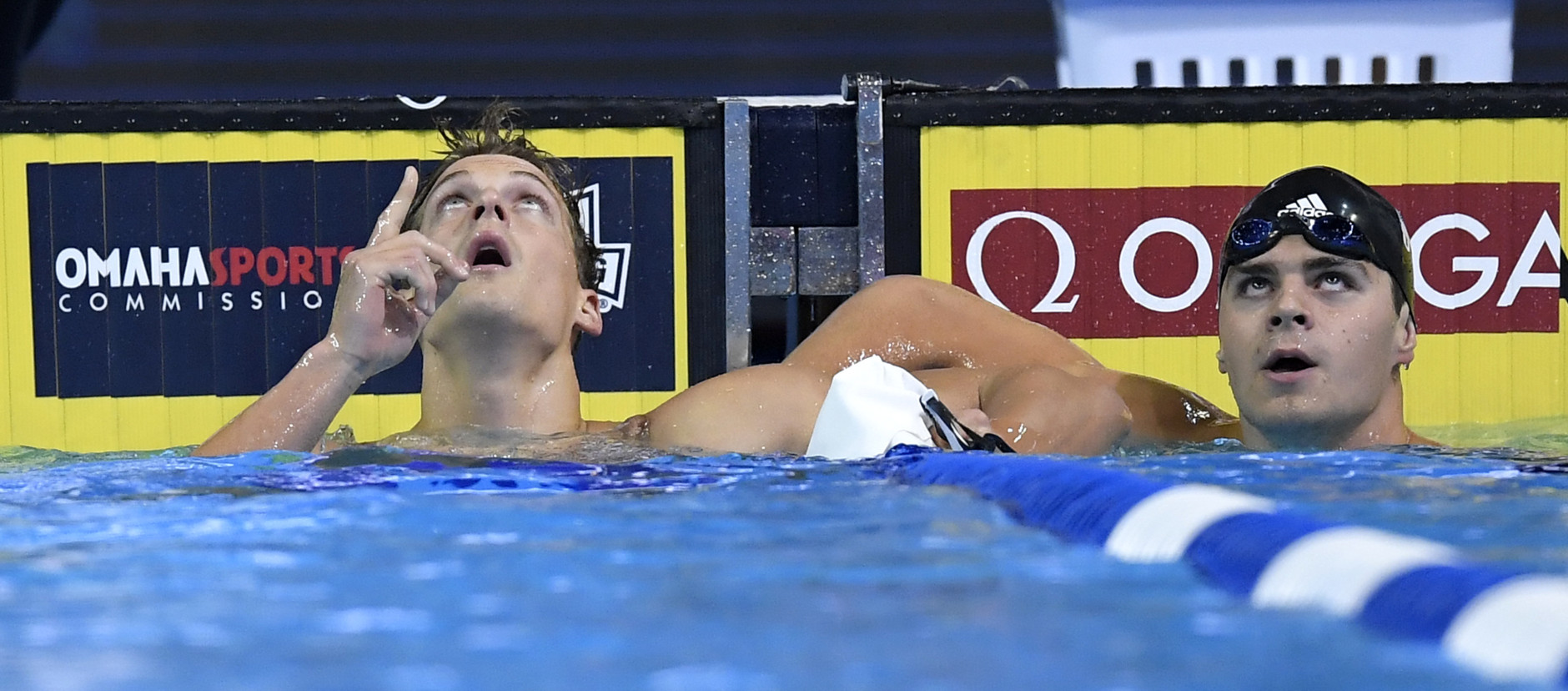
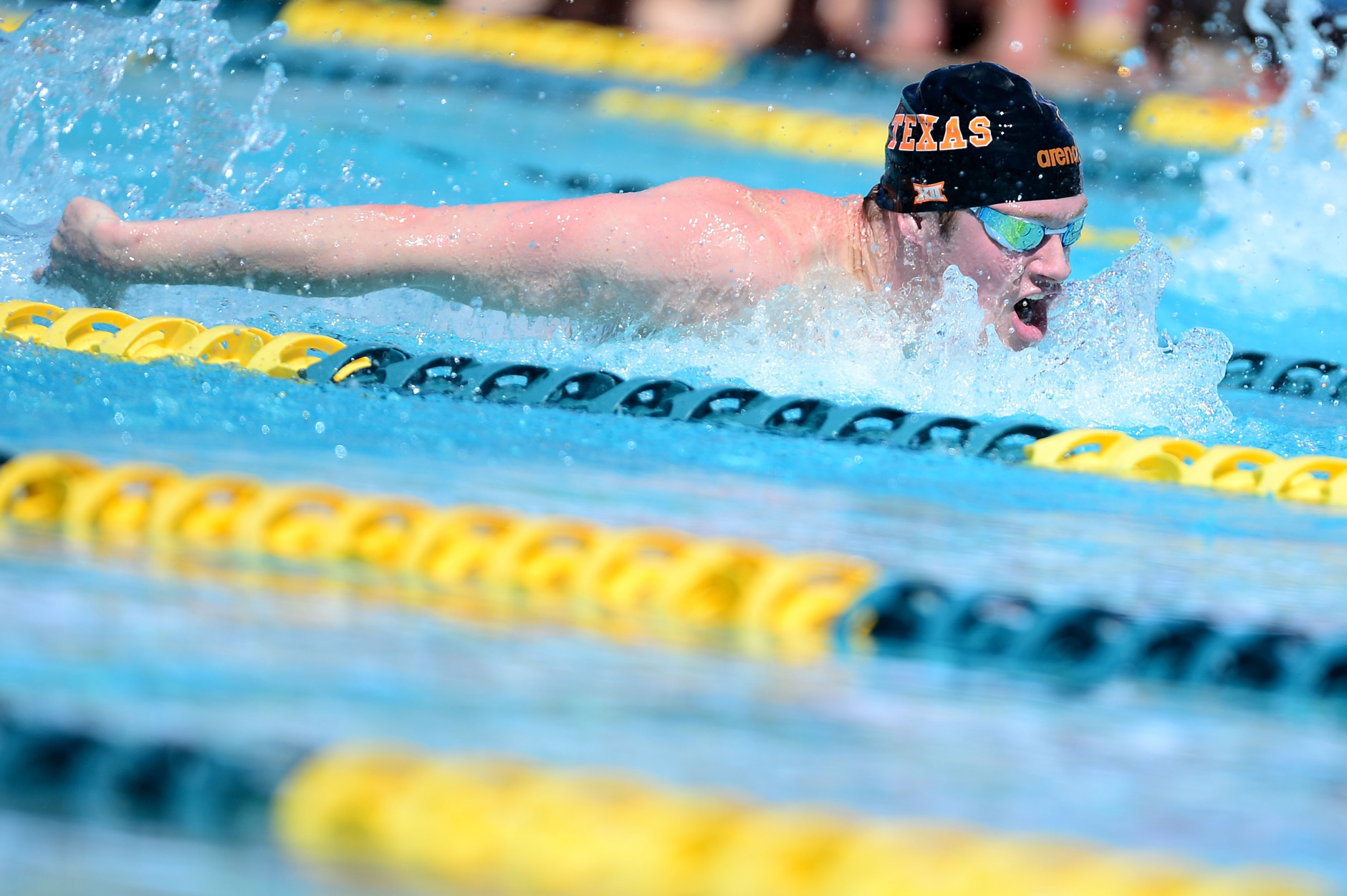

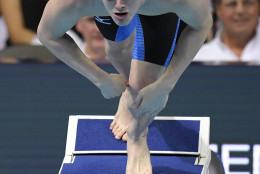
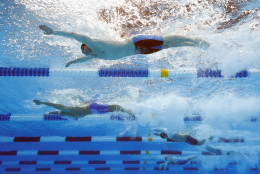
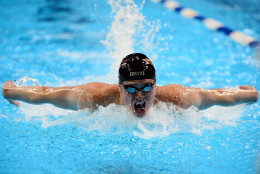
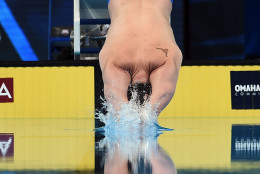
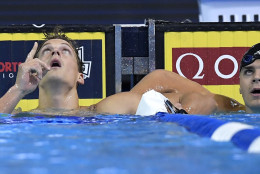
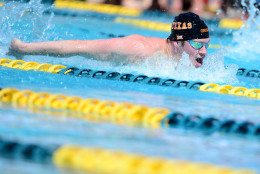
This is the fourth part in a six-part WTOP series, Beltway to Brazil, featuring local athletes headed to the Olympics.
ROCKVILLE, Md. — Stop me if you’ve heard this before: D.C.-area native takes the swimming world by storm and advances to the Olympics.
You should have stopped me.
Rockville native Jack Conger is the latest phenom to make his way into the spotlight. He was a decorated international swimmer even before enrolling at University of Texas, and Conger’s third place finish in the 200 freestyle at the Olympic Trials in July earned him a spot on the 4 x 200 relay team, where he will join Ryan Lochte and Texas teammates Townley Haas (the Richmond native who took gold by just 0.11 seconds over Conger at the trials) and Conor Dwyer.
This is no small feat. Lochte and Baltimore native Michael Phelps have been Olympic swimming staples, combining to win 33 medals (23 gold) in the last three Olympics. Being compared to those guys is flattering, but getting to compete alongside them is great.
“He’s physically and mentally matured to a point where he’s going to be able to stand up and race with the best in the world,” said Jeremy Linn, a renowned swim coach at Nation’s Capital Swim Club, of Conger. “The neat thing about when you look at Jack and Michael standing next to each other, is physically they’re built a lot the same…so [Jack] is armed with a lot of the same weapons as the best athletes that have ever lived.”
Linn should know: He medaled twice in the 1996 Olympics, setting a 400 medley relay record (since broken) en route to gold and won silver in the 100 breaststroke.
Swimming (Men’s 2 x 400 relay) fun facts:
- USA rank in the event: Dominance. The United States’ 528 total medals all-time nearly triple the next closest country (Australia) and adds up to more than the next five closest countries combined. In fact, the U.S. has more gold medals (230) than any other nation has total medals.
- Last USA medal: Gold in 2012
- Fun fact: USA has won three straight 4 x 200 relays, led by Michael Phelps and Ryan Lochte.
Having seen Conger’s progress up close, Linn has a unique perspective on what has changed for the 21-year-old star since falling short of qualifying for the London games four years ago.
“He’s got 15-20 pounds more strength than he did in 2012; that can only be a benefit for him,” said Linn. “Not only the maturity of having four more years of racing on a national and international level, but also having that strength and that training behind him for the last four years is really going to serve him well,” he said.
Conger is renowned for his versatility, both inside and outside the pool. He is an honor roll student in his senior year at Texas, all while winning two silver medals and a bronze in three events at the 2015 World University Games. He is also an NCAA champion in three relays: 200 free, 400 medley and 800 freestyle.
It is no surprise Conger is in position to step out of the long shadows cast by Phelps and fellow Nations Capital Swim Club swimmer Katie Ledecky. This area is a hotbed for swimming talent, and has been for many years. In fact, Linn said you can thank that competition for Conger’s high expectations.
“If you break through and make that U.S. Olympic team, you’re in contention for a medal right away,” Linn said. “North Baltimore and Nation’s Capital Swim Club are the two clubs that have throughout the last 35 years have really produced to that elite level. As far as participation is concerned, I would say the greater Washington, D.C. area is the capital of the world. I think there’s more people in this sport than any other place in the world and the model is there for success.”



